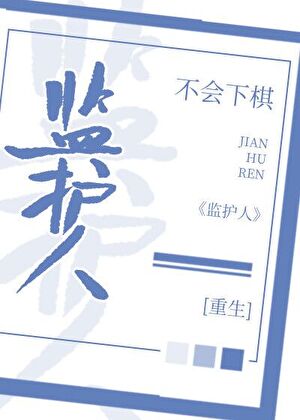After Liu Yutong left,
Yun Cheng, Ma Da, and the others didn’t disperse immediately.
Instead, they picked up the documents on the table and began reviewing them.
Truthfully, they had seen these materials before, but the Wanlong Association had a large number of personnel, and daily affairs were already overwhelming.
It would take some time to go through everything thoroughly.
Take Zhang Tao, for example—Ma Da, as the supervising leader, hadn’t yet reviewed his investigation file.
As for how Liu Yutong could pinpoint the issues so accurately, the reasoning was simple.
By using a filtering method, she could quickly identify the root of the problem.
Liu Yutong first determined who hadn’t participated in the stock subscription, then directly pulled their files for priority review.
Usually, those with issues were often among this small group.
If she had gone through every single document one by one, Liu Yutong wouldn’t have been able to finish in such a short time.
Of course, Liu Yutong wasn’t trying to criticize them harshly.
It was just that the Wanlong Association had grown significantly—its core members alone numbered nearly 400, not to mention the Yilian Society affiliates, and the regular employees (excluding part-timers) were close to 3,000.
As the organization expanded, management naturally became far more challenging.
In fact, with such a large-scale operation, some lower-level members had begun taking advantage of the association’s influence to stir up trouble—there were far too many incidents.
Maintaining the Wanlong Association’s cohesion was crucial; otherwise, it risked descending into the same chaos as other gangs.
To preserve the unity they had in the early days, attention to detail was key.
They had to make sure every member knew that the leadership cared about them—that was all it took.
This simple principle was more effective than any rigid attendance policy.
The Wanlong Association had never installed time clocks or enforced punch-in systems—something outsiders found quite bold.
Most companies of a certain size implemented clock-in policies to prevent tardiness or early departures.
But the Wanlong Association had no such rules.
Liu Yutong firmly believed that true cohesion came from members’ self-discipline and sense of belonging, not forced regulations.
If you treated this place as your home, no one needed to remind you when to wake up or when to work.
If you were just here to slack off, even time clocks wouldn’t improve productivity.
In her past life, she had read a study stating that in an 8-hour workday, the average person’s actual productive time was only about 5 hours—and if overtime was involved, efficiency dropped even further.
At the Wanlong Association, that number increased by at least 1.5 to 2 hours.
Without clock-in rules, those delayed by unavoidable circumstances wouldn’t feel pressured, nor would they rush dangerously to work.
For example, in freezing weather, hurrying to the office could lead to slips and falls, or reckless biking through red lights and accidents.
If someone was late for a legitimate reason, they’d often compensate by working more diligently upon arrival.
Once they had finished reviewing,
Yun Cheng set down the documents and looked at the group. "Liu Yutong is right. Back when we were running the streets, didn’t we always watch out for our own? If you didn’t look after your brothers, who’d stick with you? Now that we’re bigger, we’ve lost some of that."
"There’s something I’ve never told you all. Liu Yutong once shared her old dream with me—to earn a bit of money and travel the world freely. With her abilities, I’m sure she could’ve done it."
"But then she met us, and she said she wanted all of us to chase our dreams together—to get rich as one!"
"She’s been working toward that ever since, improving benefits, even proposing employee stock ownership. I have no doubt that under her leadership, the company will go public someday. By then, Liu Yutong could easily land on the rich list, and us executives might also amass considerable wealth."
"The reason she pushed for employee shares was to ensure our people’s fortunes kept pace with the company’s growth—a safety net."
"Think about it—what kind of lives did we used to have? How much did we earn each month? And we were always on edge."
"Now look. Ma Da, buying a car or a house is no trouble for you, right? And the rest of us have bright futures ahead, don’t we?"
"Isn’t this exactly what Liu Yutong has been building?"
"Our numbers are growing fast—next year, we might hit 10,000 members. By then, each of us will be managing large teams. But the bigger we get, the more we have to stay true to our roots."
"We can’t let our people down."
"Zhang Tao has been with us for so long, yet we had no idea about his family situation. This is truly a failure on our part, and we need to reflect. If the young mistress could notice something was wrong just from subtle signs, why couldn’t we? We simply weren’t paying enough attention..."
Yun Cheng, who was usually the quietest, spoke more today than he ever had in front of the gathered executives.
Everyone lowered their heads in silence.
It was true—they hadn’t done nearly enough.
Otherwise, the young mistress wouldn’t have had to remind them.
Ma Da was so moved that he stood up abruptly. "I’ve failed too! I’ll reflect deeply on this!"
The young mistress had given up the company’s future IPO—and with it, her own chance at immense wealth—just so the brothers could have a better life. Wasn’t an IPO just a way to rake in money?
Yet she had the opportunity and chose not to take it.
What kind of noble character was that?
From now on, he would examine himself daily, reminding not just himself but everyone else too.
The young mistress could have been flying on private jets and sailing the world on luxury yachts. But for the sake of everyone, she had given it all up.
Her sacrifice was too great!
No, they had to work harder.
As the saying goes, a train runs fast only when the engine leads.
Their hardships meant nothing—what mattered was helping the young mistress achieve her dreams: boarding private jets and cruising the world on a luxury yacht.
Only when the young mistress thrived could they all truly prosper.
Wasn’t this the essence of "letting the prosperous lead the way"?
Absolutely!
When Ma Da went to find Zhang Tao later, he learned the man had already taken leave and gone to Danan City, 180 kilometers from Bright Pearl City.
He guessed Zhang Tao had taken his father there for medical treatment.
Bright Pearl City had decent healthcare, thanks to its medical university, ranking well within the province.
But when it came to oncology, Danan City was more authoritative.
Of course, the costs were higher too.
And with out-of-town insurance, reimbursement was a hassle.
Ma Da had initially planned to have the finance department wire money directly to Zhang Tao, but after recalling the young mistress’s words, he decided to go in person instead.
So he gathered a few brothers, took some cash, and drove straight to Danan City on the highway.
...............
At a certain oncology hospital.
Zhang Tao’s father was scheduled for surgery in the next day or two and had just been admitted.
The oncology hospital in Danan City was indeed reputable, but its wards were also extremely crowded.
Patients from all over flocked here—so many that Zhang Tao couldn’t help but wonder, Why are hospitals always full of sick people?
After a long wait, he finally secured a bed, moving from the noisy hallway into a relatively quieter four-person room.
He was lucky—his spot was by the window, where sunlight could still reach.
But even with the light streaming in, it couldn’t dispel the air of despair that hung over the ward.
Sitting on a plastic stool beside the bed, Zhang Tao stared at his father’s sallow, pallid face, worn down by illness, feeling as if needles were piercing his heart.
The pressure was crushing. The anxiety gnawed at him.
The doctor had already warned him—the surgery would be expensive, and the money he had was far from enough.







